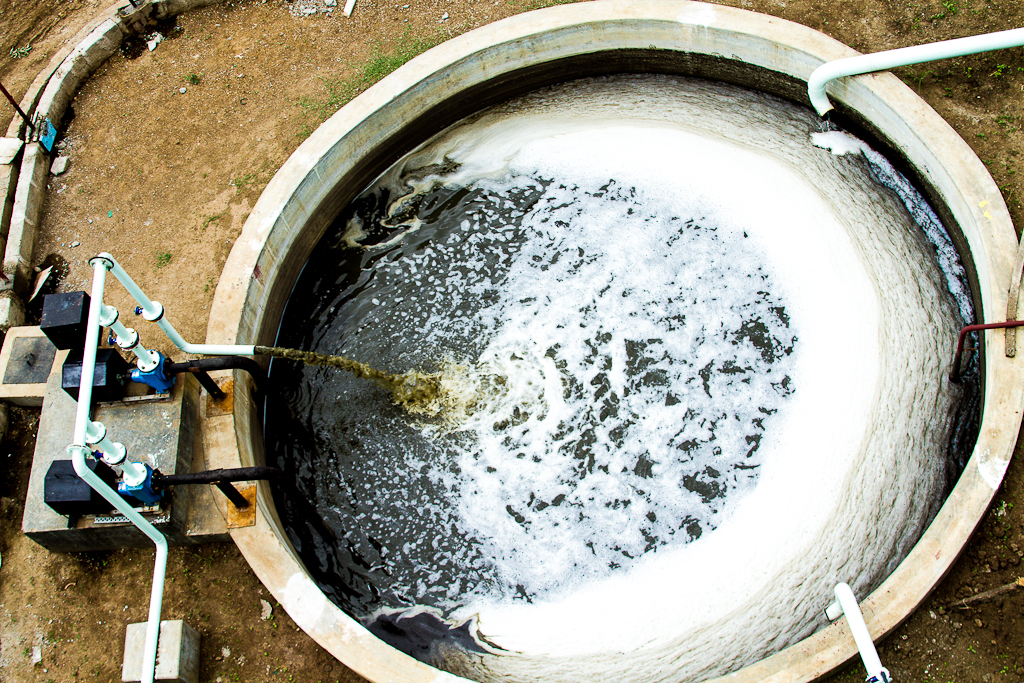Addressing antibiotic resistance in the Jordan Valley

Antimicrobial resistance (AMR) also known as the silent pandemic, is a serious global health threat and low- and middle-income countries are likely to be the most affected in terms of economic burden and public health. Deaths from drug resistant infections are projected to increase from 700,000 to 10 million annually. Antibiotics have found their way into wastewater and recently more studies have highlighted the role of wastewater as a significant environmental reservoir of AMR. This environment is conducive for the global spread of multi-resistant bacteria and other microorganisms and for antimicrobial resistant genes to persist. Wastewater treatment processes can assist in removing or reducing the antimicrobial resistant bacterial load. However, the impact on the resistant genes is limited as they are not degradable and therefore are able to spread amongst other microbial communities in the environment through gene transfer, a process by which bacteria transfer resistant genes. In addition, another growing area of concern is the uptake of these antibiotics by crops irrigated by treated wastewater.
The ReWaterMENA project is a multi-partner, four-year initiative that started in 2018 to expand the safe reuse of water in the Middle East and North Africa (MENA). The project is funded by Sida and led by the International Water Management Institute (IWMI). The project is regional in scope and has specific activities in Egypt, Jordan and Lebanon. In Jordan, activities are conducted in partnership with the Royal Scientific Society.
Jordan has a population of 9 million, of which 73% live in urban areas in the northern and middle parts of the country. The Jordan valley, also known as the food basket of the country, extends along the Jordan River to the Dead Sea covering an area of approximately 1554 km2. The 33,000 hectares of land contributes to 50% of the food production in the country and it is no doubt that the Jordan Valley is an asset to the country and represents a wealth of resource to the nearby communities.
The country uses 33 centralized wastewater treatment systems to treat 66% of the generated wastewater producing 130 million cubic meters of water per year. Of this, 56 million cubic meters ends up in King Talal Dam. There is a need to expand the use of treated wastewater in agriculture even further to save freshwater for domestic purposes and to increase productivity in the agricultural sector. The Ministry of Water and Irrigation in Jordan has plans to mix the fresh water with treated wastewater from the main wastewater treatment plants.
Through the request of the Ministry of Water and Irrigation in Jordan, the ReWaterMENA project is collecting baseline data and studying the long term risks of reusing treated wastewater in north Jordan valley. In Particular, IWMI and RSS are investigating sources and levels of pollution of antibiotic resistance genes and pharmaceutical residues in agricultural chains irrigated with related wastewater. These chains include irrigation water (treated wastewater) soil and crops in middle part of the Jordan valley.
Javier Mateo-Sagasta, senior researcher at IWMI and ReWaterMENA project leader, said that the project activities in Jordan are the first of its kind in the country. Results seek to inform a government strategy to mitigate long term risks of water reuse in the Jordan valley.
Samples from soil and irrigation water will be collected from three plots over two years and tested for selected pharmaceutical compounds. Samples will be analyzed in treated wastewater and soil-irrigated with wastewater using mass spectrophotometry. The compounds to analyse are Diclofenac, Lopromide, Carbamazepine and Sulfamethazine which are commonly found compounds in raw and treated water. In addition, the samples will be analyzed to determine the contribution to the accumulation and spread of resistance genes.
Almoayied Assayed, the manager of Water Studies at Royal Scientific Society, added that, ‘the RSS and IWMI researchers are also working together to develop safe reuse of water models and scenarios in Jordan Valley that can be piloted and scaled all across the region.’
For more information on this project, contact Javier Mateo-Sagasta or Almoayied Assayed,
Read more on the related publications:
- Removal of Selected Pharmaceuticals and Personal Care Products in Wastewater Treatment Plant in Jordan
- Analysis of Some Pharmaceuticals in surface water in Jordan. The WSTA 13th Gulf Water Conference, 12-14 March 2019, Kuwait.
- Analysis of Some Pharmaceuticals in Influents of Municipal Wastewater Treatment Plants in Jordan
This blog post was originally published on https://amr.cgiar.org/blog/addressing-antibiotic-resistance-jordan-valley
